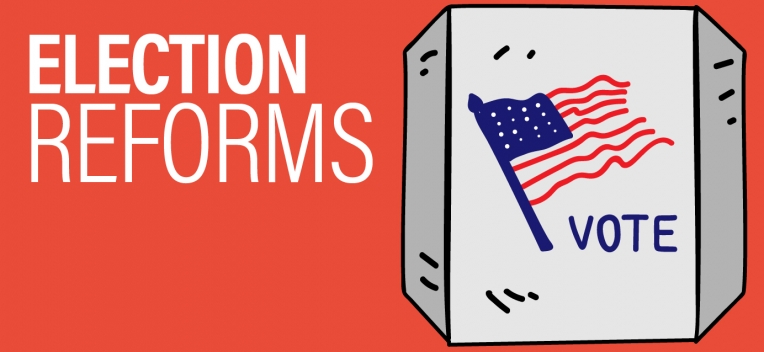Michigan House Republicans approved a controversial measure to require voters to show identification to cast a ballot Wednesday, also tacking on a provision that would compel election workers to verify voters’ signatures at the polls.
As amended by the House, Senate Bills 303 and 304 would remove the option for voters to sign an affidavit of identity in lieu of providing official photo identification at the polls. Instead, a prospective voter who showed up without ID would be issued a provisional ballot and would have to later prove their identity to their local clerk for their vote to count.
Another House change would require election workers to compare a voters’ signature with digitized signatures in the state’s qualified voter file. If an election worker determines the signatures don’t match, voters would have to cast a provisional ballot and confirm their identity to local clerks within six days of the election.
Supporters of the measure say the changes would make Michigan’s elections more secure. But the legislation passed 58-52 over the opposition of House Democrats, who said the measures would put up additional barriers, especially for minority voters.
“This is nothing but modern-day Jim Crow laws created to mute the already voiceless,” said state Rep. Tenisha Yancey, D-Harper Woods. “These bills will only create more obstacles for those who already had so many obstacles to be able to maintain their rights to vote.”
State Rep. Ann Bollin said she’s committed to ensuring all eligible voters in Michigan can vote. Companion House legislation added to the Senate package Wednesday would make ID cards free to all Michigan residents.
“The changes we’re considering today will protect the vote, add a level of transparency and accountability, and advance democracy by ensuring all eligible voters have access to an ID,” Bollin said on the House floor.
The two Senate bills and House Bill 5007, the bill to make state ID cards free for all Michigan residents, passed 58-52 along partisan lines. Another bill allocating $1 million to fund the free ID cards passed 56-54. The package is tie-barred, meaning all the bills would need to pass for any to become law.
Currently, a state personal identification card costs $10 to obtain or renew, although there are fee waiver exceptions for some individuals.
The effort to add additional requirements to Michigan’s voting process has been months in the making and comes as similar measures are being introduced and debated in other states.
In March, Michigan Senate Republicans debuted their initial plan to overhaul the state’s election laws. Evocations of the civil rights movement and accusations of racism and voter suppression from Democratic officials and liberal activists ensued.
Despite tweaks to the bills, Democratic officials and activists for weeks have accused Republican lawmakers across the country of being inspired by former President Donald Trump’s unfounded claims of voter fraud.
Michigan Democratic Party Chair Lavora Barnes said in a statement that lawmakers who voted for the measures “should be ashamed of their votes tonight.”
“I am disgusted by the elected officials that purposefully created more barriers to voting just because they didn’t like the outcome of the 2020 elections,” she said.
Earlier Wednesday, the Senate Oversight Committee released a report that found no evidence of widespread or systematic voter fraud in the 2020 general election, but said that “continued investigation” into the issue is possible should other details emerge. It concluded there is a need to improve election security and procedures.
Dozens of audits, recounts and court rulings have concluded that Michigan’s November election was free of fraud, but conventional efforts to validate the election results haven’t been enough to satisfy many Trump supporters and even some lawmakers.
Conservative activists and election conspiracists are calling for an Arizona-style “forensic audit,” which McBroom said in the report is not justifiable. Michigan Secretary of State Jocelyn Benson has called the Arizona audit an illegitimate effort to spread misinformation and undermine faith in elections.
On Tuesday, state House Rep. Steve Carra, R-Three Rivers, introduced House Bill 5091, which would create a bipartisan audit board to review the 2020 general election, to complete what he described as a forensic audit.
- Laker Men’s Basketball Handle Kuyper 88-55 - December 23, 2024
- MYWAY Sault Bridge Brawl & NEMWA Regional Results - February 22, 2024
- Crawford County Prosecutor clears State Trooper in the fatal shooting of man earlier this month - February 23, 2023



